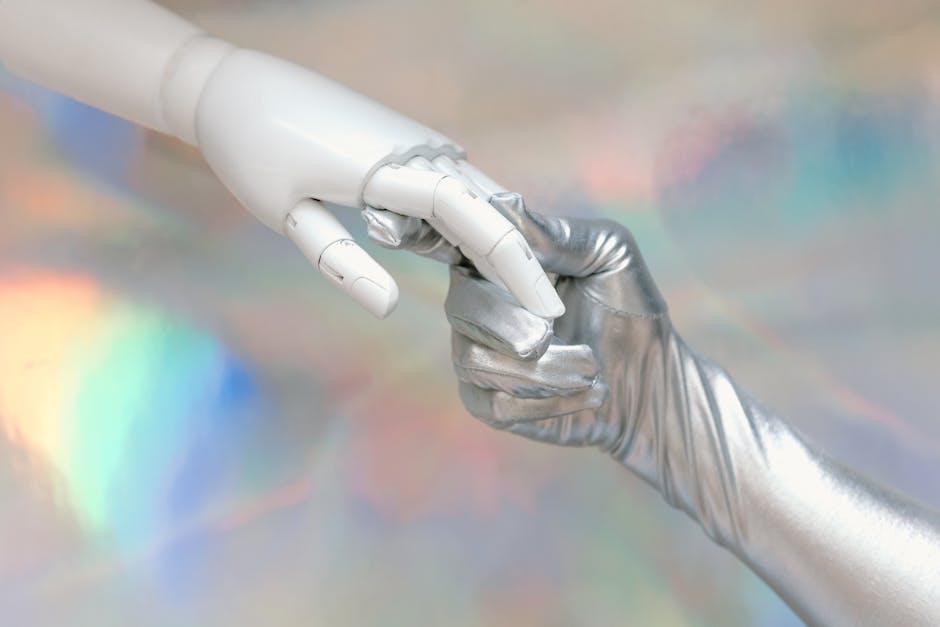The Digital Ecosystem of Emotion: AI's Impact on Our Feelings Online
In today’s technology-driven world, emotions are no longer just the realm of human-to-human interactions. Thanks to artificial intelligence (AI), our emotional exchanges online are actively analyzed, interpreted, and even responded to by algorithms designed to enhance and transform these interactions. But how has AI entered this space, and what can we learn about our evolving digital ecosystem of emotion? Let’s dive into the riveting world of emotional intelligence in AI, and uncover how these innovations are reshaping our online experience.
Understanding AI and Emotional Intelligence
Artificial intelligence has come a long way from being a mere buzzword to a critical component of daily life. Recent advances have allowed algorithms to process not just text but also tone, context, and emotional nuances. From chatbots offering customer support to sophisticated systems in mental health applications, AI is now growing its roots deep into our emotional experiences. But what does this mean?
The Rise of Emotionally Intelligent AI
Emotional intelligence in AI refers to a system's ability to recognize, understand, and respond to human emotions effectively. This involves a complex interplay between machine learning, natural language processing, and affective computing—the latter focused on simulating human emotional engagement.
For instance, AI can now analyze text chats or voice tones to identify emotional states and adjust responses accordingly. This can drastically change customer support dynamics, creating a more empathetic and engaging interaction, as highlighted in the article The Rise of Empathy Bots.
Dissecting Human Emotions in Digital Spaces
Various platforms utilize AI to mine emotional data. Social media platforms track likes and shares, while other applications analyze interactions. This data enables companies to craft personalized experiences that resonate on a deeper emotional level. Think of how targeted ads seem to know what you’re feeling—it's AI at work.
The ongoing digital transformation raises questions about privacy and data ethics. This is explored in depth in The Hidden Architecture of Digital Trust, which considers how blockchain can reinforce trust while engaging with emotional digital interactions.
AI in Mental Health: A Double-Edged Sword
The realm of mental health has embraced AI with open arms, showcasing both opportunities and challenges. With the increasing mental health crisis worldwide, AI-driven platforms promise accessible emotional support solutions.
AI-Driven Therapeutic Interventions
A growing number of mobile applications utilize AI to provide therapeutic interventions like mood tracking or cognitive behavioral therapy techniques. For numerous individuals, especially in regions with limited access to therapists, these digital solutions can be a lifeline. A study published in the Harvard Business Review confirms how AI interventions could offer relevant support, tailoring strategies based on user behavior and emotional feedback.
However, reliance on AI for mental health care comes with risks. Can algorithms truly understand human emotions? There's a subtlety to emotional pain that AI might misinterpret or overlook. These considerations are critical for advocates and developers alike, making it essential to examine components like ethical AI use in mental health.
The Potential of Augmented Reality in Therapy
Augmented reality (AR), paired with AI, offers intriguing possibilities for emotional interactions in therapy. Imagine using AR for visualizing emotions or engaging clients through immersive experiences. This revolutionary approach to traditional therapy frameworks is addressed in Augmented Reality in Therapy.
Bridging the Emotional Gap: AI's Transformational Role

While AI enhances emotional interactions, it doesn’t replace the essence of human connection. This transformation leads to the development of technological empathy—a construct that helps to bridge emotional gaps online. By enabling machines to understand and engage with human emotions, we open new avenues for digital relationships.
The Evolution of Digital Companionship

The rise of emotionally intelligent AI leads us to consider a future where virtual companions become commonplace. Think about the concept of digital immortality and virtual companions discussed in Digital Immortality. These companions can simulate conversation patterns, offer support during tough moments, and create meaningful bonds.
Emotional Feedback Through Wearables

Moreover, advancements in wearable technology revolutionize our emotional interactions. Devices that track physiological responses—heart rates, skin conductance, and more—can help parse emotions in real time, giving AI a clearer picture of how users feel throughout the day. This intersection of wellness and tech is an exciting area worth delving into, as seen in Emotional Mastery.
Privacy and Ethics: Navigating the Emotional Minefield

As we navigate this budding ecosystem of emotional AI, privacy remains a major concern. Consent, data ownership, and the ethical implications of emotional analytics are topics that require deliberation.
The Need for Clear Regulations

With AI's role in shaping emotional experiences, robust regulations are essential to safeguard users’ rights. Organizations and developers must uphold ethical standards, ensuring that emotional data collection doesn’t become exploitative. The blog post Protect Your Online Identity features insights on maintaining personal privacy in this evolving digital landscape.
AI and the Future of Human Connection

As we advance toward an era marked by AI's emotional intelligence, a new relationship between technology and human experience is unfolding. Brands that embrace authentic, emotionally driven AI engagement will likely outpace competitors.
Future Digital Interactions

Future platforms may leverage AI to create more personalized and empathetic user experiences, influencing everything from marketing strategies to customer service. The role of AI in enhancing emotional engagement is explored further in the piece The Digital Harmony.
Building Emotional Resilience with Tech

Lastly, AI can help foster emotional resilience through tailored interventions, whether through reminders to take breaks or suggestions to engage in mindfulness activities. By working in harmony with users, AI can guide us toward healthier emotional landscapes.
Final Thoughts: Embracing the AI-Driven Emotional Ecosystem
Navigating the digital ecosystem of emotion where AI plays an increasingly pivotal role invites us to reflect on our interactions and relationships with technology. By understanding the ramifications of AI's emotional capabilities, we can adopt a balanced attitude towards tech use that celebrates human connections while harnessing technological advantages.
As we step into an era of deeper emotional interactions within the digital realm, the implication of AI’s role will become clearer. Whether you're a casual user or a developer in the field, acknowledging these evolving dynamics can empower us. Embrace this journey as we uncover more about the incredible possibilities of an AI-driven emotional landscape. Are you ready to explore?








